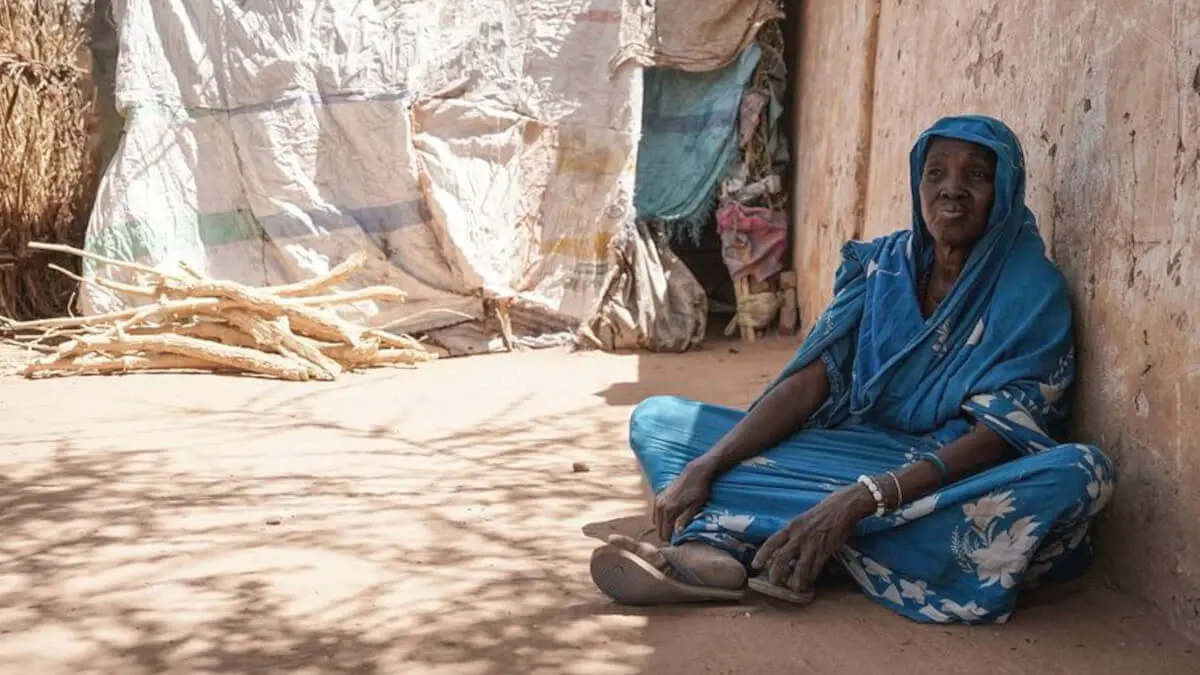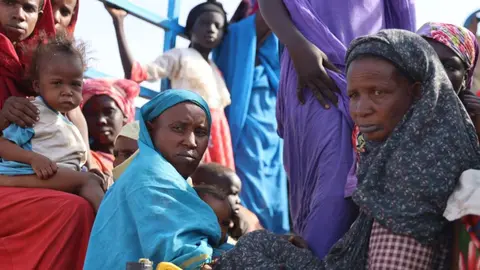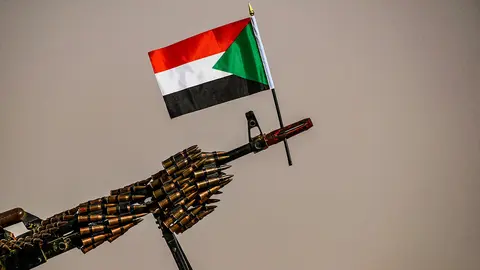Hunger stalks 800,000 people trapped in El Fasher, Sudan

- Wounded without care
- Insufficient health reserves
- Leaving Sudan because of hunger
- One of the worst emergencies
Some 800,000 people are trapped in El Fasher, the capital of Sudan's North Darfur province, without supplies and basic services, suffering from hunger and in fear of starvation, the World Health Organisation (WHO) said on Tuesday.
Fighting between the Sudanese army and the Rapid Support Forces has made access to the city impossible, leaving the population without any humanitarian assistance. Meanwhile, UN-sponsored talks between the warring parties are continuing in Geneva to seek a peaceful solution.
The conflict erupted in April 2023 between rival militaries over a proposed transition to civilian rule following a coup in 2021 and the ouster in 2019 of President Omar Al-Bashir.
WHO's representative in Sudan, Shible Sahbani, explained that the states of Darfur, Kordofan, Khartoum and Al Jazira are virtually cut off from humanitarian and health assistance due to the ongoing fighting.
Wounded without care
‘The situation in Darfur is particularly alarming, in places like El Fasher the wounded are unable to receive the urgent care they need. Children and pregnant and lactating women are weak due to acute hunger,’ he stressed at a press conference in Geneva.
Sahbani reported that hostilities have affected large parts of Sudan since fighting with heavy weapons and fighter jets spread from the capital, Khartoum, to other regions and states, including Darfur, located in the west of the country.
In addition to urging the parties to ensure the protection of civilians, aid teams and public infrastructure, including hospitals, in accordance with international humanitarian law, Sahbani stressed the urgency of immediate access to aid agencies ‘to avoid an even more disastrous health situation’.
Insufficient health reserves
Existing health stocks have been used to supply some hospitals in El Fasher, but are neither sufficient nor sustainable, he said.
He added that the Office for Humanitarian Affairs (OCHA) continues to negotiate with the parties to allow uninterrupted trucking of aid supplies.
‘Right now we have seven trucks going from Kordofan to Darfur, yesterday we got approval for them to go to Darfur,’ Sahbani said, noting that there have been positive signs about cross-border aid operations from different parties.
‘But it is not enough, again (...) We need more support in the country from the warring parties and we need more support from big countries that have some influence in this scenario.
Leaving Sudan because of hunger
Sahbani said he travelled on an assessment mission to Chad last week, where refugees assured him that the main reason for leaving Sudan is hunger, famine. ‘They said it's not insecurity or lack of access to basic services, it's that they have nothing to eat.
Among the testimonies she heard, she also heard from a woman who told her that the fighters had taken away all the supplies they needed to produce their food locally, so she had to walk for three days with her children to reach Chad without eating the whole way.
One of the worst emergencies
Sahbani warned that the humanitarian response in Sudan is only 26 percent funded and said the emergency is ‘one of the worst in the world’.
Humanitarian access and the protection of civilians are among the main points of discussion at UN-mediated talks that began last week in Geneva between representatives of the Sudanese Armed Forces and the paramilitary Rapid Support Forces. The UN Secretary General's envoy Ramtane Lamamra is leading the talks.
UN spokeswoman in Geneva, Alessandra Vellucci, told reporters that both delegations are ‘engaged’ and that Lamamra and his team had several interactions with each over the weekend.
‘If we don't get a ceasefire, we could at least get the protection of civilians and the opening of humanitarian corridors,’ Sahbani stressed.










